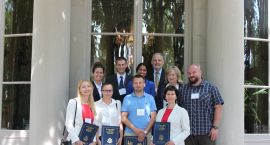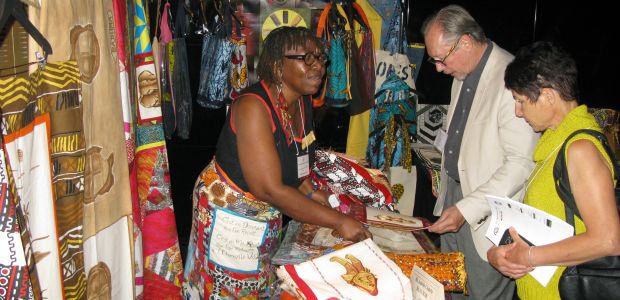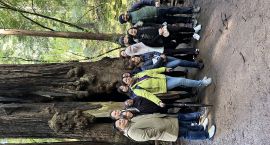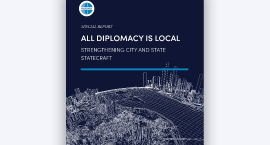Promoting global economic security has long been a foreign policy goal of the U.S. Department of State, and in recent years, this has manifested itself in an increasing number of exchange programs intended to promote entrepreneurship and small business development. These programs have brought leaders in government, the non-profit sector, education and business, not to mention entrepreneurs themselves, to examine the principles of successful entrepreneurship in the United States.
One of the most notable entrepreneurship exchanges is the African Women’s Entrepreneurship Program (AWEP), a flagship International Visitor Leadership Program (IVLP) that Meridian has proudly administered since it began in 2010. A recent independent evaluation of AWEP commissioned by the U.S. Department of State concluded that as a result of AWEP-IVLP participation, 72% of surveyed participants expanded into new local, regional, and/or international markets and 9 out of 10 surveyed alumni felt more confident about their business abilities, more optimistic about their futures, and better equipped to deal with potential uncertainty.
Designing a program for participants engaged in entrepreneurship can be challenging, particularly when group participants are engaged in broadly divergent business niches. We are always on the lookout for innovative best practices across the spectrum of topics inherent in these projects. Programmers have more choice when considering certain standard program elements. Some examples include:
- Government engagement in the support of business at all levels of government, including the federal Small Business Administration’s role at the state and local level
- Public-private partnerships in support of small business development
- University/business partnerships (research, technology transfers, commercialization of research)
- University entrepreneurship training
- Site visits to incubators and accelerators (to avoid repetition, the number of these scheduled throughout a program should be monitored)
- Funding and venture capital institutions
- Programs that support women and minorities in entrepreneurship
- Youth entrepreneurship development
- Social entrepreneurship (small businesses with a social cause)
Most importantly, participants must meet with successful entrepreneurs at varying stages of their careers. These meetings should focus on the initial start-up process through marketing, production, and sustaining a successful enterprise. One successful approach is to craft a case study of a business within a specific industry or niche that would include the birth of an idea, initial development, creation of beta products, market tests, fundraising, partnerships (if relevant) and ultimate entry into the marketplace. It is also important to include organizations and initiatives that assist entrepreneurs who want to enter into the global marketplace.
Venues that bring local entrepreneurs together to share experiences and to pitch their products to each other, such as One Million Cups, are excellent resources for visitors wishing to network and share experiences.
Every community offers a panoply of entrepreneurship resources, particularly since small business development is one of the most important engines of economic growth and development. For the sake of variety in programming, and to avoid resource burnout, it is important to continually research and develop contacts with entrepreneurs to meet with international participants.
Entrepreneurship programs offer endless opportunities for creative programming. Successful entrepreneurs are innovative, they are risk-takers and they play an important role not only in economic growth and job creation, but also across a spectrum of cultural and social concerns that impact the community at large.
















